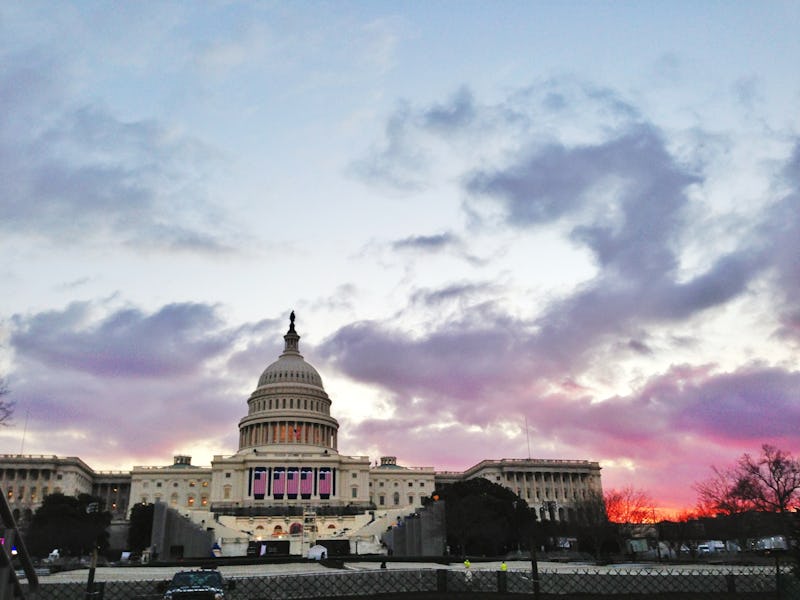The U.S. dollar has been the official currency of the United States since 1785, but recently, the government has taken a formal interest in a system of monetary exchange that bears no presidential portraits, and is better known for facilitating shadowy drug deals on the internet than balancing a budget. In early February, Jared Polis, a Democratic Congressman from Colorado, and David Schweikert, a Republican from Arizona, established the Congressional Blockchain Caucus, a lobbying group that aims to prod, bug, and inform other legislators about Blockchain’s potential to revolutionize the way the federal bureaucracy spends money.
Blockchain supporters have been claiming for years that the secured public ledger technology, which provides the foundation for Bitcoin and other cryptocurrencies, could bring some much-needed transparency to government. A blockchain ledger provides a permanent, public, and cryptographically secured record of a “contract” between all parties who use it. It’s easy to use as a basis for currency transactions, because if users agree the ledger is reliable then it can have value — just like the value we assign to pieces of paper. But because the blockchain is both public and secure, it means we can conduct financial transfers out in the open, eliminating disputes and counterfeiting. For personal accounting, a blockchain system means free international money transfers could go through in seconds instead of hours or days. For the government, it could mean a lot more.
Proponents, like Polis and Schweikert, say the technology could allow public programs like a digital welfare system or secure online voting as well as improve border security tracking, all while helping secure the public’s data from outside hackers or unlawful use by the authorities, if it’s programmed to only allow access when presented with an appropriate cryptographic warrant.
Imagine if, as part of his promise to release his tax returns after the IRS completed an audit, Donald Trump had been forced to sign over the documents to a blockchain system programmed to release them on the agreed-upon date. Once a promise is in a blockchain, it’s impossible to back out.
Eventually, however, blockchain’s growing popularity comes down to money. Both financial heavyweights like JP Morgan and Deutsche Bank and Silicon Valley giants like IBM and Intel are obsessed with “FinTech,” or financial technology. As a result, blockchain research collectives include representatives from both industries. And since these companies know that the blockchain’s security will be the only thing between their holdings and hackers, most of their research collaborations are open source, to help decrease the chance that bugs and exploits will remain unknown for long, because when a blockchain system does fail, it can be catastrophic.
In June of last year, the Ethereum cryptocurrency basically imploded after a hacker found a vulnerability in the system and managed to steal $53 million worth of digital currency. The blockchain’s contracts are still vulnerable to human error and the infrastructure around them, which means any future government applications will have to be air-tight from malicious hackers or foreign states.
Still, unlike other FinTech solutions, which trend toward proprietary algorithms and for-profit data crunching, the blockchain has always been touted as a more egalitarian solution by the more libertarian-minded hacker set. Though the blockchain’s versatility may indeed help the rich get richer, it also makes the confusing, shadowy world of big data and big money a little more transparent — bringing together the goals of powerful lobbying groups and internet activists alike.
If Polis and Schweikert do their jobs well, however, the U.S. government still wouldn’t be the first to experiment with blockchain. The Republic of Georgia has already used blockchain transactions to secure land titles, and government agencies in Dubai announced they would experiment with several pilot programs this year. No doubt the newly-created Congressional Blockchain Caucus will be watching closely.
